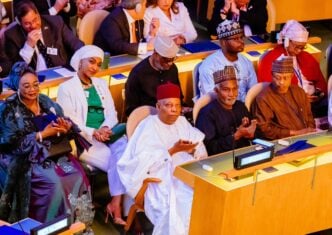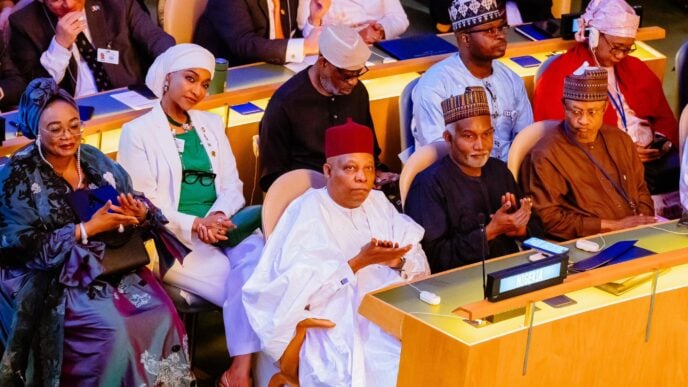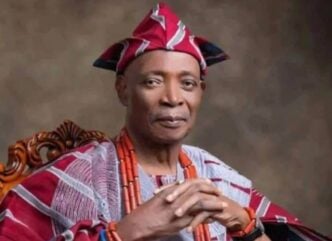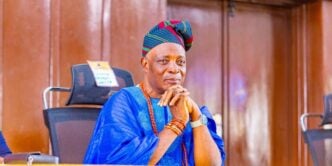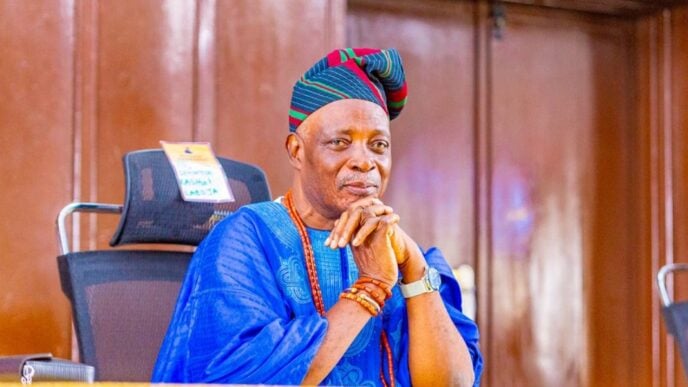BY RABI UMMI UMAR
When asked whether the move to provide special seats for women in the national assembly is worth celebrating, my answer is an emphatic yes. This milestone is long overdue, yet deeply heart-warming.
It is one Nigerian women have waited for with hope and tenacity, far too long in coming. First introduced in the 9th national assembly as one of five gender-related constitutional reform bills, the proposal failed spectacularly when it came up for voting in March 2022.
At the time, it was among the five “gender bills” put forward during the fifth constitutional amendment process, all intended to address women’s issues in governance and representation.
Advertisement
Initially, the bill proposed 111 additional seats in the federal legislature – three special seats for women in each state and one in the FCT, spread across the senate and house of representatives. The current bill, however, scales this number down to 74 seats under HB 1349, addressing concerns about over-expansion of the legislature.
Significantly, it also includes a review clause, with the possibility of termination after 16 years. Now passed through its second reading in the house of representatives and referred to the committee on constitution review for further legislative action, the bill has gained real momentum.
It enjoys strong backing from speaker of the house Abbas Tajudeen, women’s groups, the United Nations, the United Kingdom, the European Union, and several other stakeholders. President Bola Tinubu, in his 2023 campaign manifesto, promised to make women’s inclusion a priority.
Advertisement
The advancement of this bill is thus heartening to see, a concrete step toward keeping that pledge. It is also a step in the right direction for Nigeria, opening doors for more women to participate in leadership and decision-making processes that shape the nation.
When this bill is finally actualized, Nigeria may only regret not taking the step earlier. Women have increasingly sought meaningful opportunities to prove their worth and play an active role in the country’s development.
The aphorism goes, “Only a woman truly knows the pain of another woman.” With more women in parliament, issues that directly affect women and children will no longer be treated superficially or dismissed as “emotional.”
Beyond that, women deserve equal rights with men, including the right to participate fully in politics and lawmaking. Their presence in the National Assembly will not only bring balance but also a sense of belonging and pride. Issues like menstrual health, rape, child abuse, female genital mutilation, and femicide would find stronger voices and greater empathy in a more inclusive legislature.
Advertisement
As leaders and mothers, women bring perspectives grounded in lived experience. Their contributions would enrich debates, restore balance, and deepen gender equality—paving the way for a more prosperous and equitable Nigeria.
The case for women’s representation is not an empty one. Nigerian women have already shown what is possible when given opportunities. Ngozi Okonjo-Iweala, former minister of finance and current director-general of the World Trade Organization (WTO), remains a shining example of excellence on the global stage.
Obiageli Ezekwesili, who served as minister of solid minerals and later minister of education, earned the enduring title of “Madam Due Process” for her reforms. And today, young women like Maryam Hassan Bukar, a poet and the UN’s first Global Advocate for Peace and Security, are inspiring the world with their brilliance and courage.
For these reasons and more, the case for women’s special seats in the National Assembly is both urgent and undeniable. Let us continue to support women, acknowledge their contributions, and provide opportunities for them to lead.
Advertisement
To those fighting for the bill’s passage, thank you for your courage and resilience. And to those who will one day occupy these seats, may you excel and bring pride to Nigeria.
Rabi Ummi Umar can be reached at [email protected]
Advertisement
Views expressed by contributors are strictly personal and not of TheCable.

